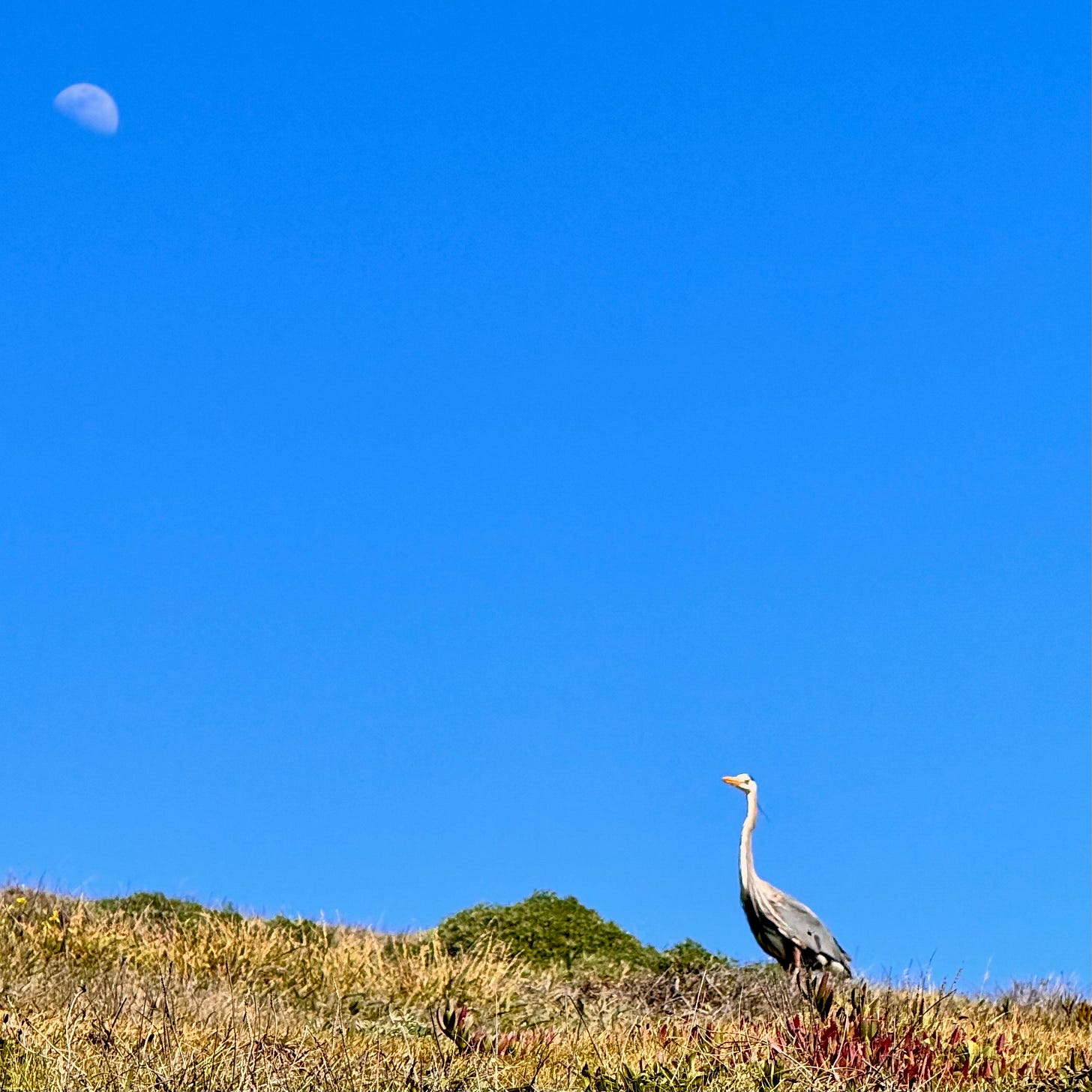Held by the Wind, Watched by the Heron
A daylong meditation retreat in nature with Mark Coleman
About a month ago, after a particularly profound experience at a Vipassana retreat, I found myself seeking further ways to deepen my mindfulness practice. I wanted something that extended beyond the cushion — something that brought awareness into the world, into movement, into nature.
That’s when I came across Mark…




